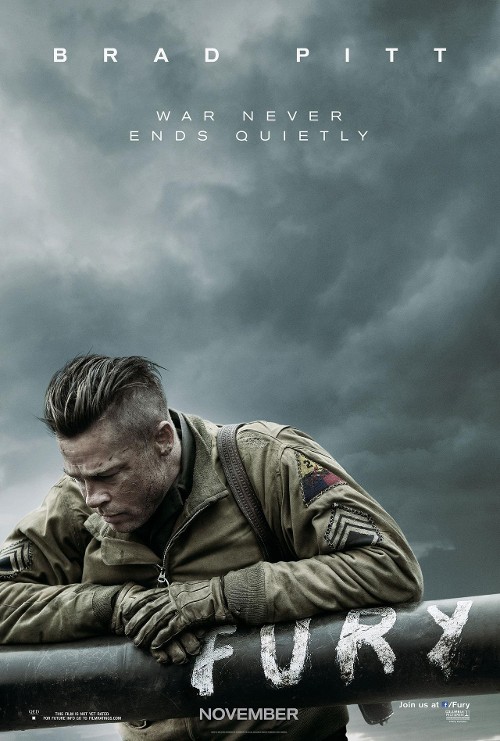I was happily surprised following the "Honor. Glory. War." poster campaign that the film itself mostly aims to accurately depict the last of those themes rather than try to horn in the first two. The graphic violence, grim and occasionally macabre imagery, and morally problematic decisions are a fitting depiction of the end stages of the war, and far more welcome than the easily-consumed and quickly forgotten war drama of something like Defiance. The tank crew the film follows during the punishing drive through Germany is composed of flawed, damaged people who are pretty far from the idealized Greatest Generation heroes that I'm sure the marketing campaign for the film would have preferred to lionize, but who make for far more compelling viewing.
As far as the cast goes, Pitt does fine work, if a little one-note, as the harshly paternal tank commander, as does Logan Lerman as the green, "I'm not even supposed to be here!" kid, but the best performances come from television stalwart Jon Bernthal and (!) Shia LeBoeuf, who provide what could be simplistic caricatures with nuanced shadings of the coping mechanisms deployed to process an unbearable situation. The blue-grey color scheme and the ravaged countrysides and towns are ably photographed by Roman Vasyanov, and Ayer ably executes the action sequences such that they feel refreshingly dynamic and have a clear sense of space and strategy.
Unfortunately,
SpoilerShow
after the mostly compelling and occasionally excellent first two-thirds of the film, including a prolonged, tense sequence with some locals and one of the more dynamic and realistic small-scale tank battles ever filmed, the climax falls victim to the assumed need for the tropes of a) a massive battle against overwhelming odds which results in b) a series of tragic, self-sacrificing ends for most of the cast and which is all due to c) a truly unreasonable act of what I guess is supposed to be heroism, but which doesn't fully justify itself in terms of story logic and especially as a major reversal of what we'd been shown of the main characters' motivations for the previous 90 minutes. There were so many other ways for the final sequence to play out basically as it did without the characters - Pitt's War Daddy in particular - actively choosing to place themselves in that situation. This stumble, and the final declaration of the titular tank crew's heroism, was so jarringly out of place with the rest of the film's tone and treatment of 20th-century warfare that it ultimately holds the overall film back from being one of the year's better major studio films.
Trailer
